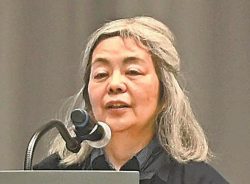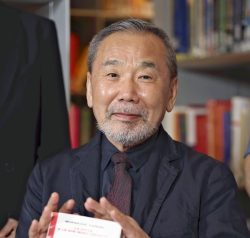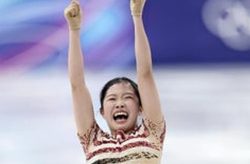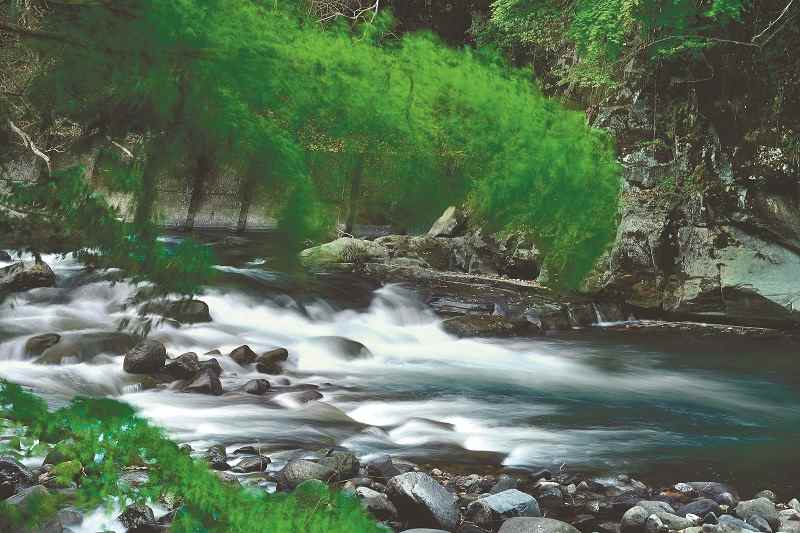
The clear waters of the Kano River flow ceaselessly on, while the lush greenery sways in the breeze that comes down the valley and blows across the river’s surface.
15:27 JST, June 30, 2022
IZU, Shizuoka — In early April, the day after a Sunday spent working, I hurriedly left Tokyo and arrived in the Yugashima district of Izu before noon. The lush greenery was sublime, just one step shy of fresh verdure. A cool river flows there, and as I walked through an area dotted with hot spring inns, the warm spring air enveloped me. I wasn’t quite sure, but I thought I felt my face quickly become more beautiful.
Yasunari Kawabata (1899-1972) loved Yugashima and stayed there for long stretches between 1924 and 1927, and during his sojourns he was repeatedly visited by fellow writers, such as Motojiro Kajii. Suffering from pulmonary tuberculosis, Kajii moved to the area in 1926 to improve his health. In 1927, before Takeo Fujisawa became a popular writer, he also traveled to Yugashima to recuperate.
The writers would visit each other’s lodgings or even stay at the same inn. Kawabata must have watched with pleasure as their faces came alive. Kawabata wrote about the events that took place in Yugashima in an essay on the cover design of “The Izu Dancer” and other related matters, which was published in 1927. In the essay, he mentions the conditions of Fujisawa and others, and even writes that the mountain air makes people look more beautiful. Kawabata also notes that if a clear stream flows through his spirit, Yugashima may have gifted it to him.
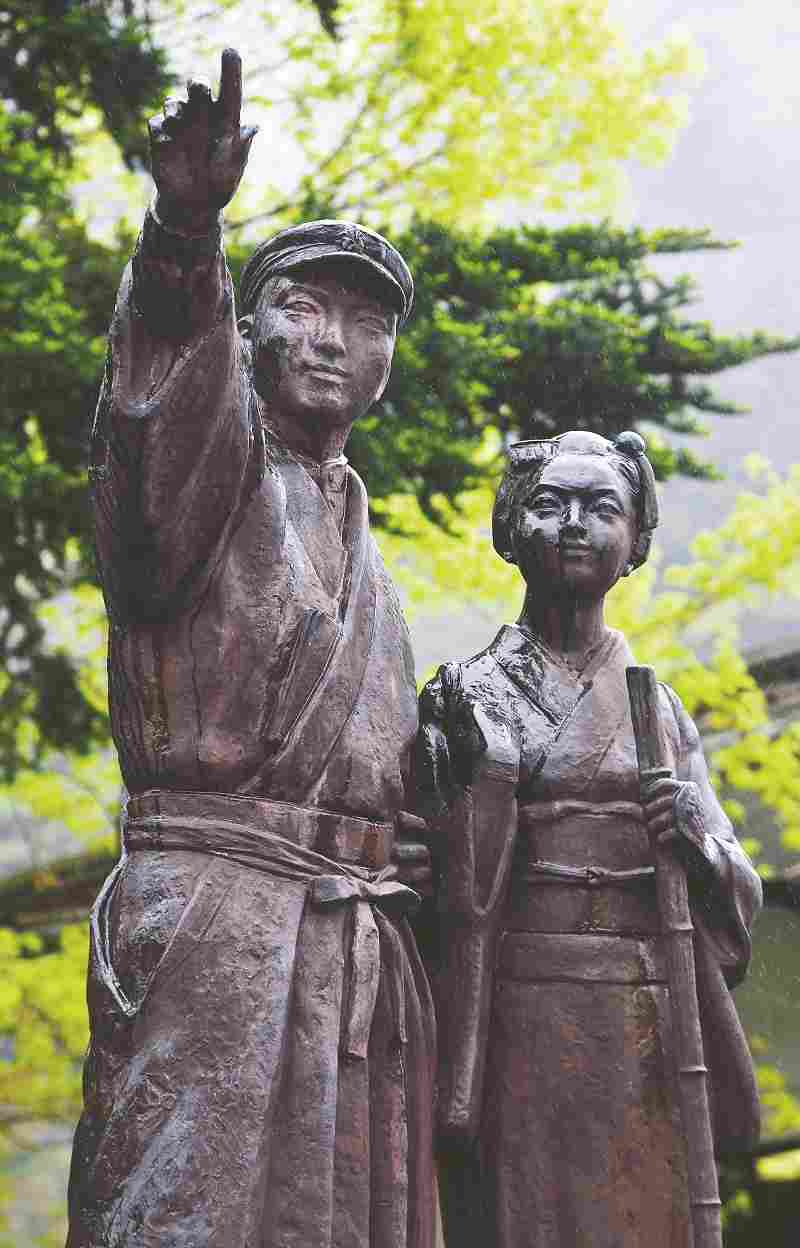
A statue memorializing Kawabata’s “The Izu Dancer,” wet from rainfall in the Amagi mountain range
Extended stays
The Yumotokan inn is located on the banks of the Kano River, the source of which is in the Amagi mountain range. The building, which still retains the old-style charm from when the inn was founded in 1905, sits quietly amid nature where the murmuring of the river and birdsong are the only sounds heard.
Kawabata was a student of the First Higher School around the age of 20 when he visited the venerable inn for the first time in 1918. He traveled alone to Izu to escape the gloom of dormitory life and met a dancer.
During his stay at Yumotokan in 1922, Kawabata wrote “Yugashima de no Omoide” (Memories from Yugashima), which was a draft of “The Izu Dancer.”
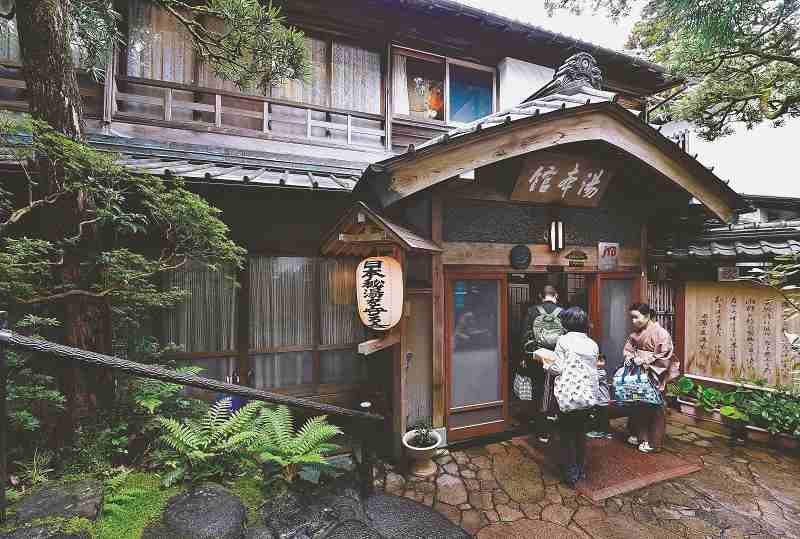
Visitors to Yugashima enter the Yumotokan inn, where novelist Yasunari Kawabata lived for a time.
“Kawabata visited the inn many times and the proprietress at the time treated him as if he were her own child,” said Akira Tsuchiya, the current proprietor. “Passing the time here, where he was blessed to be in a natural environment and have human contact, helped to heal what he called his ‘orphan’s spirit.’”
Kawabata’s parents died when he was young, and his grandfather died when he was in junior high school. Orphaned, Kawabata was taken in by his mother’s family.
I strolled for 30 minutes or so along a walking course called the “Yudo path,” passing Yumotokan and a few other Yugashima inns, and crossed bridges over the Kano River and its tributaries.
“This place is rustic,” said Fumio Sugimoto, a representative of the Amagi Nature Guide Club, but he wasn’t implying that it is provincial. Yugashima is a simple and tranquil place — the kind of rural idyll that makes visitors feel more beautiful.
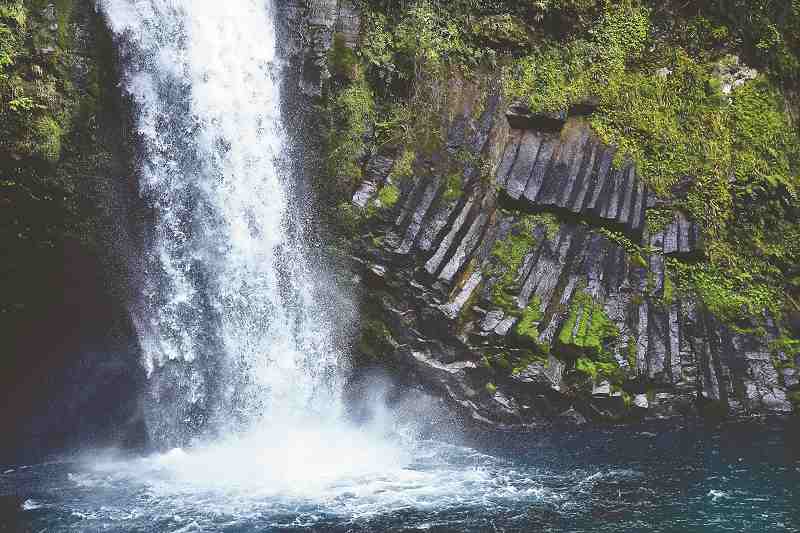
The Joren no Taki waterfall cascades down columnar-jointed rock in Yugashima.
Yasunari Kawabata
Kawabata was born in Osaka. The author of stories that sublimely express the beauty of Japan, such as “The Izu Dancer” which is also titled as “The Dancing Girl of Izu,” “Snow Country” and “The Sound of the Mountain,” became in 1968 the first Japanese person to be awarded the Nobel Prize in Literature.
This year marks the 50th anniversary of his death, and an exhibition honoring the writer was held at the Museum of Modern Japanese Literature in Tokyo. Several essays, including the one on the cover design of “The Izu Dancer,” are included in “Izu no Tabi” (Journey to Izu) published by Chuko Bunko of Chuokoron-Shinsha.
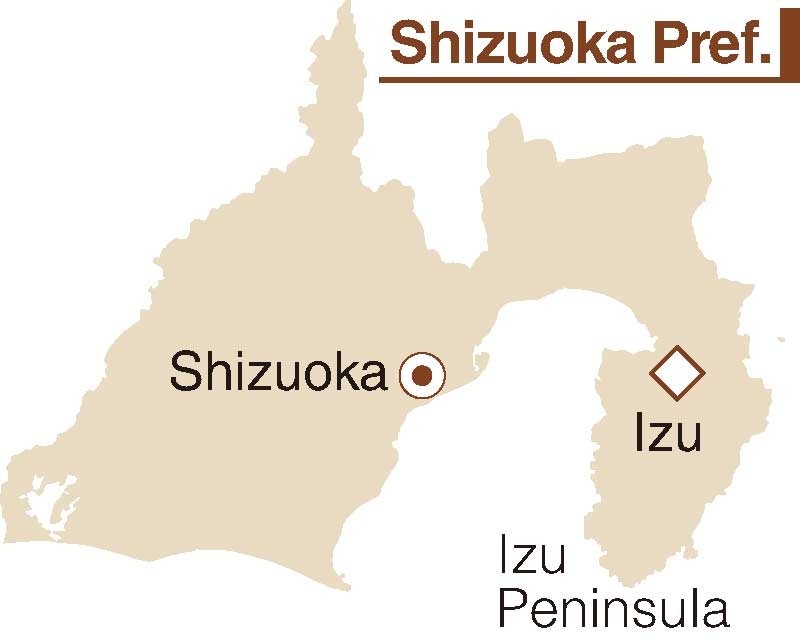
Top Articles in Culture
-

BTS to Hold Comeback Concert in Seoul on March 21; Popular Boy Band Releases New Album to Signal Return
-
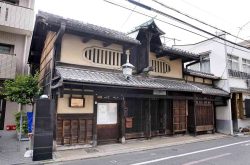
Lifestyle at Kyoto Traditional Machiya Townhouse to Be Showcased in Documentary
-

‘Jujutsu Kaisen’ Voice Actor Junya Enoki Discusses Rapid Action Scenes in Season 3, Airing Now
-
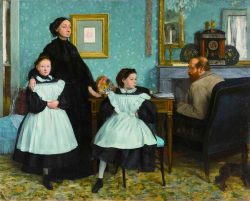
Tokyo Exhibition Offers Inside Look at Impressionism; 70 of 100 Works on ‘Interiors’ by Monet, Others on Loan from Paris
-
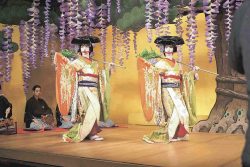
Japanese Film ‘Kokuho’ Receives Oscar Nod in Makeup, Hairstyling Category; Makeup Artist Kazu Hiro Also Nominated
JN ACCESS RANKING
-

Japan Institute to Use Domestic Commercial Optical Lattice Clock to Set Japan Standard Time
-

Japan PM Takaichi’s Cabinet Resigns en Masse
-

Israeli Ambassador to Japan Speaks about Japan’s Role in the Reconstruction of Gaza
-

Man Infected with Measles May Have Come in Contact with Many People in Tokyo, Went to Store, Restaurant Around When Symptoms Emerged
-

Prudential Life Insurance Plans to Fully Compensate for Damages Caused by Fraudulent Actions Without Waiting for Third-Party Committee Review




